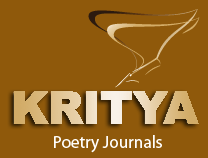Editor Choice
Joy Harjo 
Born in Tulsa, Oklahoma and an enrolled member of the Muskogee Tribe, Joy Harjo came to New Mexico to attend the Institute of American Indian Arts where she studied painting and theatre, not music and poetry, though she did write a few lyrics for an Indian acid rock band. Joy attended the University of New Mexico where she received her B.A. in 1976, followes by an M.F.A. from the University of Iowa. She has also taken part in a non-degree program in Filmmaking from the Anthropology Film Center.
She began writing poetry when the national Indian political climate demanded singers and speakers, and was taken by the intensity and beauty possible in the craft. Her most recent book of poetry is the award-winning How We Became Human: New and Selected Poems. It wasn’t until she was in Denver that she took up the saxophone because she wanted to learn how to sing and had in mind a band that would combine the poetry with a music there were no words yet to define, a music involving elements of tribal musics, jazz and rock. She eventually returned to New Mexico where she began the first stirrings of what was to be Joy Harjo and Poetic Justice when she began working with Susan Williams. Their first meeting occurred several years before in Blues Alley in Washington, D.C., a hint of things to come.
Joy has published in magazines such as Massachusetts Review, Ploughshares, River Styx, Contact II, The Bloomsbury Review, Journal of Ethnic Studies, American Voice, Sonora Review, Kenyon Review, Beloit Poetry Review, Greenfield Review and Puerto del Sol. She has made recordings, done screenwriting, given readings all over the world and is now performing with her own music.
Joy has taught at Arizona State University as a Lecturer in 1980-81, at Santa Fe Community College as an Instructor in 1983-84, at the Institute of American Indian Arts as an Instructor in 1978-79 and in 1983-84. She was an Assistant Professor at the University of Colorado from 1985-1988, an Associate Professor at the University of Arizona in 1988-1990 and a Full Professor at the University of New Mexico from 1991-1995. She is currently teaching at the University of California at Los Angeles.
Joy is a member of the PEN Advisory Board and the PEN New Mexico Advisory Board. She has been a member of the Native American Public Broadcasting Consortium Board of Directors from 1987 to 1990, The Phoenix Indian Center Board of Directors in 1980-81, the Coordinating Council of Literary Magazines Grants Panel for the Fall of 1980, the National Endowment for the Arts Policy Panel for Literature 1980-83, the New Mexico Arts Commission Advisory Panel 1979-80 and 1984, and the National Third World Writers Association Board of Directors (which is no longer functioning).
“If we cry more tears we will ruin the land with salt; instead let’s praise that which would distract us with despair. Make a song for death, a song for yellow teeth and bad breath”
–Joy Harjo, from “Mourning Song”
“Sacred space–I call it a place of grace, or the place in which we’re most human–the place in which there’s a unity of human-ness with wolf-ness, with hummingbird-ness, with Sandia Mountain-ness with rain cloud-ness? . . .It’s that place in which we understand there is no separation between worlds. It has everything to do with the way we live. The land is responsible for the clothes you have on, for my saxophone, for the paper that I write these things on, for our bodies. It’s responsible for everything.”
-Joy Harjo
Evening Song
I failed a little
Dip the wound in water
Wrap it in a redbird’s song
Climb into the canoe
And paddle out from the weeping
Let the failing fail
Let the stars bear trouble
Let the canoe carry
What we cannot bury.
c Joy Harjo 2006
NAMING
for Vanessa, Toshi, Krista, and Tamarin
I call my sisters to dress for the stomp dance
As all the little creatures hum and sing
in the thick grass around the grounds.
Lightning bugs are tiny stars
dancing in the river of dusk.
Our stomachs are full of meat and fry bread
and the talk of aunts and uncles.
Beautiful fire at the center of the dance
and the dusk has been lit.
We lace up our turtle shells so we
can dance into the circle.
And in this spirit world is the grocery
store over the hill, and all the houses,
the river, the sky, and the highway.
We have been here forever
say our mother, our father.
And this is the name we call ourselves
i tell my sisters,
this name that gives our legs the music
to shake the shells–
a name that is unspeakable
by those who disrespect us
–a name with power to thread us through
the dark to dawn
and leads us faithfully to the stars.
c Joy Harjo 2006
IT’S RAINING IN HONOLULU
There is a small mist at the brow of the mountain,
each leaf of flower, of taro, tree and bush shivers with ecstasy.
And the rain songs of all the flowering ones who have called for the rain
can be found there, flourishing beneath the currents of singing.
Rain opens us, like flowers, or earth that has been thirsty for more than a season.
We stop all of our talking, quit thinking, or blowing sax to drink the mystery.
We listen to the breathing beneath our breathing.
This is how the rain became rain, how we became human.
The wetness saturates everything, including the perpetrators of the second overthrow.
We will plant songs where there were curses.
c Joy Harjo 2006
EQUINOX
I must keep from breaking into the story by force
for if I do I will find myself with a war club in my hand
and the smoke of grief staggering toward the sun,
you nation dead beside you.
I keep walking away though it has been an eternity
and from each drop of blood
springs up sons and daughters, trees,
a mountain of sorrows, of songs.
I tell you this from the dusk of a small city in the north
not far from the birthplace of cars and industry.
Geese are returning to mate and crocuses have
broken through the frozen earth.
Soon they will come for me and I will make my stand
before the jury of destiny. Yes, I will answer in the clatter
of the new world, I have broken my addiction to war
and desire. Yes, I will reply, I have buried the dead
and made songs of the blood, the marrow.
c Joy Harjo 2006
NO
Yes that was me you saw shaking with bravery, with a government issued rifle on my back. I’m sorry I could not greet you as you deserved, my relative.
No. They were not my tears. I have a resevoir inside. They will be cried by my sons, my daughters if I can’t learn how to turn tears to stone.
Yes, that was me standing in the back door of the house in the alley, with a bowl of beans in my hands for the neighbors, a baby on my hip.
No. I did not foresee the flood of blood. How they would forget our friendship, would return to kill me and the baby.
Yes, that was me whirling on the dance floor. We made such a racket with all that joy. I loved the whole world in that silly music.
No. I did not realize the terrible dance in the staccato of bullets.
Yes. I smelled the burning grease of corpses after they were lit by the pages of our poems. And like a fool I expected our words might rise up and jam the artillery in the hands of dictators.
No. We had to keep going. Our songs of grief cleaned the air of enemy spirits.
Yes, I did see the terrible black clouds over the suburb as I cooked dinner. And the messages of the dying spelled there in the ashy sunset. Every one addressed: “mother”.
No, there was nothing about it in the news. Everything was the same. Unemployment was up. Another queen crowned with flowers. Then there were the sports scores.
Yes, the distance was great between your country and mine. Yet our children played in the path between our houses.
We had no quarrel with each other.
© Joy Harjo, Honolulu, HI, 2003
( Reprinted )

